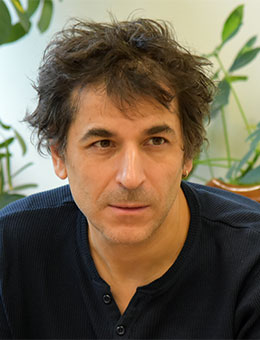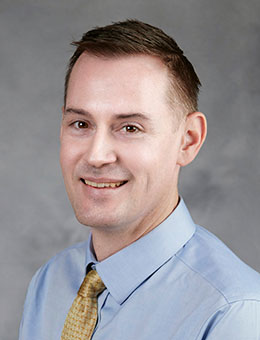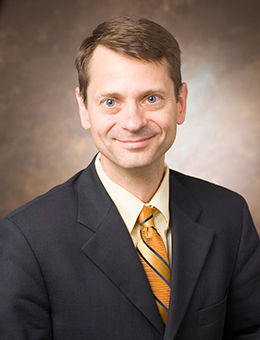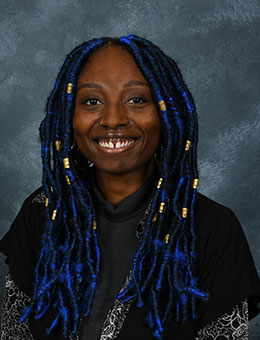
Dr. Bőthe works at the Department of Psychology at the University of Montréal (Canada) as an assistant professor. She focuses on addictions, compulsive sexual behaviors, and problematic and non-problematic pornography use. The overarching aims of her research program are to use state-of-the-art methods to (1) develop well-validated, theory-based assessment tools, (2) identify who may develop compulsive sexual behaviors and why, (3) examine the context (e.g., motivations) that may differentiate between sexual behaviors' positive and negative outcomes, and (4) develop and evaluate innovative, early intervention strategies to reduce compulsive sexual behaviors. She has published more than 80 international research papers in leading scientific journals and 14 book chapters. She is an Associate Editor of the Journal of Behavioral Addictions and a member of the editorial boards of other top-tier journals (e.g., Journal of Sex Research, Archives of Sexual Behavior). Among others, she was the recipient of the Society for Sex Therapy and Research's (SSTAR) Sandra R. Leiblum Student Research Award (2020), the Society for the Advancement of Sexual Health's (SASH) Research Award (2021), and the Social Sciences & Humanities Research Council's (SSHRC) Banting Postdoctoral Fellowship (2022).
Beáta Bőthe
Principal Investigator

Zsolt Demetrovics is professor of psychology and chair of the Centre of Excellence in Responsible Gaming at the University of Gibraltar. He is psychologist and cultural anthropologist and received his PhD in clinical and health psychology (addictive behaviors) at the ELTE Eötvös Loránd University, Budapest, Hungary. Formerly, he served as dean of the Faculty of Education and Psychology and director of the Institute of Psychology at the ELTE Eötvös Loránd University. He has published numerous research papers on the epidemiology, assessment and psychological correlates of substance use behavior and behavioral addictions including gambling, video gaming, internet addiction, exercise addiction, hypersexual behavior, pornography addiction, and compulsive buying. He is former president of the Hungarian Association on Addictions. He is funding Editor-in-Chief of the Journal of Behavioral Addictions and president of the International Society for the Study of Behavioral Addictions.
Zsolt Demetrovics
Co-Investigator

Dr. Shane Kraus is a licensed clinical psychologist and Assistant Professor of Psychology at University of Nevada, Las Vegas. His clinical research focuses on the study of psychopathology, sexual trauma, substance use disorders, gambling disorder, and compulsive sexual behavior disorder. He has published over 100 scholarly works on addiction and sexual behavior and has written extensively on compulsive sexual behavior. He was part of the World Health Organization (WHO) working group who put forth the diagnostic criteria for compulsive sexual behavior disorder for ICD-11. He is also the Editor-in-Chief of Journal of Sexual Health and Compulsivity (formerly Sexual Addiction & Compulsivity).
Shane W. Kraus
Co-Investigator

Dr. Marc Potenza is a board-certified psychiatrist with sub-specialty training in addiction psychiatry. He has received the following degrees from Yale University: BS/MS with Honors in Molecular Biochemistry and Biophysics, PhD in Cell Biology, and MD. He completed internship, psychiatric residency and addiction psychiatry fellowship training at Yale. Currently, he is a Professor of Psychiatry, Child Study and Neuroscience at the Yale School of Medicine where he is a Senior Scientist at the Connecticut Council on Problem Gambling and the Director of the Problem Gambling Clinic, Center of Excellence in Gambling Research, and Women and Addictive Disorders Core of Women's Health Research at Yale. He is on fifteen editorial boards (including editor-in-chief of Current Addiction Reports) and has received multiple national and international awards. He has consulted to the SAMHSA, NIH, APA and WHO on matters of addiction. He has participated in two DSM-5 research work groups.
Marc N. Potenza
Co-Investigator

Mónika Koós received her master's degree in Psychology from ELTE Eötvös Loránd University (Hungary) in 2019. She enrolled in the same year to the ELTE Eötvös Loránd University's Doctorate Program, in the specialization of Clinical Psychology and Addiction Science. Her main research topic is problematic pornography use, but her interest is not limited to that; she also actively takes part in investigations about compulsive sexual behavior disorder, sexual health and well-being, and sexual aggression. Besides her research projects, she teaches courses about survey study methodology for psychology bachelor students and mentoring several of them in writing their first thesis. She is expected to graduate from ELTE's Sexual Psychology Postgraduate Specialization training in June 2021.
Mónika Koós
Co-Investigator

Léna Nagy graduated from ELTE Eötvös Loránd University (Hungary) in 2018 and is in the Clinical Psychology and Addiction Science Doctorate Program since 2020. She is an MA in psychology with a clinical and health psychology major and graduated as a licensed sex therapist in 2023. Acting as a co-investigator for the International Sex Survey from 2020 onward, Léna is also actively engaged in various international collaborations. She researches a spectrum of topics, encompassing sexual trauma and associated factors like sexual assertiveness, as well as compulsive or otherwise problematic sexual behaviors. During the years, she presented her research at numerous international conferences (e.g., ICBA, IASR) and taught university courses on comprehensive sexuality education and survey methodology.
Léna Nagy
Co-Investigator

Anaïka (she/her) completed a bachelor in psychology at the Université de Montréal in the spring of 2023. She will begin her Ph.D. in clinical psychology research-intervention under the supervision of Dr. Beáta Bőthe in the fall of 2023 at the Université de Montréal. Her main research interests lie in the articulation of issues related to pornography use and obsessive sexual behaviours within an intersectional paradigm.
Anaïka François
Graduate research assistant